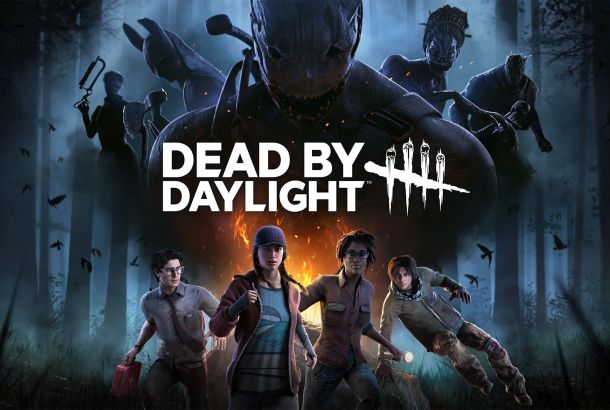Traps to watch out for in the AAA space
By Jeremy Bijl
Whilst it is EA who have made the headlines in recent weeks, the controversy surrounding Star Wars: Battlefront II is only the latest in a ceaseless merry-go-round of anti-consumer practices from the ‘AAA’ games industry.
EA may well be the worse, but what should we watch out for in the major European publishers?
EA
The company voted “the worst company in America” by The Consumerist in 2012, EA have been painstakingly building their games around monetizing their player base for years. EA’s love affair with microtransactions began back in 2009 with the release of FIFA’s ‘ultimate team’ — a game mode which showed EA the true potential of an online marketplace backed by a virtual currency. EA will do almost anything — including compromising the quality of their games — to get into your wallet, with a full range of microtransactions, season passes, loot boxes, pre-order bonuses and over-priced DLC.
You’ll also want to watch out for EA acquiring, ruining and eventually shutting down accomplished studios. Their latest victims, Visceral Studios (developers of Dead Space) are the most recent in a long line of thirteen studios to be killed off. Don’t hold your breath for Skate 4 – EA shut down the studio behind the series (Black Box) in 2013.
Activision
Activision are somewhat harder to pin down, as they really innovate when it comes to new ways to irritate their customers. Like other publishers, they have wholeheartedly embraced microtransactions and loot boxes, but their true magnus opus was the decision to tie the remaster of the hugely popular Call of Duty: Modern Warfare to the hugely unpopular Call of Duty: Infinite War in an attempt to strongarm consumers into buying it.
Activision have enjoyed a successful year, with Call and Duty and Destiny 2 both selling and reviewing well, and have mainly avoided controversy. Thanks for this are due in part to other companies stealing the limelight by doing slightly worse things — see the Shadow of War controversy that took the heat off Destiny 2 and the Battlefront II controversy that has seen Call of Duty’s loot boxes slip under the radar.
However, the evidence suggests that Activision will continue to be on the vanguard of anti-consumerism. They had two patents revealed earlier this month, both with the phrase “system and method for driving microtransactions” in the title.
Ubisoft
Ubisoft are perhaps the least clandestine amongst the major publishers, and tend to advertise very aggressively. Ubisoft’s lack of subtlety often manifests itself in the form of hugely expensive trailers, complete with cinematic gameplay representations (nicknamed the ‘bullshot’ by the internet), and fabricated voice overs (Tom Clancy’s The Division) which ultimately turn out to be exaggerated and makes the games look far deeper and more nuanced than they actually are.
They are also particularly fond of making vastly expensive pre-order editions and filling them with useless tat (Assassin’s Creed: Dawn of the Creed edition, Watch Dogs). Again, promotion for these pre-orders is often aggressive, so be wary of the tactics Ubisoft employ to pedal them.
Ubisoft feel strongly that open-world games are the future to the extent that many of their games feature sprawling open worlds with little to do in them – a method of world design that critic Jim Sterling described as “big empty sandboxes.” To address this, Ubisoft tend to fill their open worlds with repetitive and monotonous side-quests that serve as filler rather than killer.
TakeTwo Interactive
TakeTwo publish a wide variety of critically acclaimed games (such as Red Dead Redemption and Grand Theft Auto V) across a huge number of platforms. They are, however, one of the market’s most persistent pedallers of microtransaction. As of April 2016, GTA V had generated half a billion dollars in microtransactions, emboldening TakeTwo to taketwo them to the next level.
NBA 2K18 thusly released with the whole game, single player and all, built around building the playable character stats through microtransactions. A month or so later, the release of WWE 2K18 saw microtransactions hugely reduced, with the virtual currency replaced by an even greater evil – loot boxes.
With Read Dead Redemption 2 coming in 2018 and promising an online mode, you will want to be wary of a gradual shift towards a ‘game-as-service’ type model which promises plenty of content, but increased strain on the wallet. CEO Strauss Zelnick said in a conference not so long ago that, “[TakeTwo] are convinced that we are probably, from an industry view, under-monetising on a per-user basis”. We might reasonably expect, then, TakeTwo’s monetization of video games to only get worse.
Warner Bros.
Warner Bros. Interactive Entertainment hit the headlines recently in the spate of pre-Battlefront II controversies. Indeed, Middle-Earth: Shadow of War was criticised for many of the same things (excessive and intrusive loot boxes and microtransactions) as Battlefront II, but was fortunate to be the straw before the straw that broke the camel’s back.
Warner Bros. has been turning wildly successful film franchises into games for many years. One of the primary issues with their games is their exploitation of the season-pass, which transpires to include a laughably low amount of content, as in Batman: Arkham Knight.
Warner Bros. will generally jump on the bandwagon when it comes to anti-consumer practices and try and push it that little bit further. I suspect they see videogames primarily as another way to monetize superheroes.
Bethesda
A few years ago, Bethesda were industry darlings, generally steering clear of the practices of the rest of the industry and producing a low number of high quality games such as Skyrim and Dishonoured.
Bethesda, however, have recently been courting controversy. First up, they started to refuse to give out review copies shortly before the release of the exceedingly buggy and astoundingly mediocre Prey, and some have speculated that this was to capitalise on the company’s good reputation and not damage pre-orders of the game.
Their current policy — to send out review copies one day before release — is purportedly to ensure “everyone, including those in the media, experience our games at the same time,” but remain wary of this policy safeguarding against a fallout of sales resulting from issues on launch, especially with regard to PC games. We have already seen this with Dishonored 2.
They have also unveiled plans to start monetizing mods, even though this is a phrase they steadfastly refuse to use. This was widely seen as an attempt to profit off the hard work of others, and has seen Bethesda’s status of the last bastion of AAA integrity widely redacted.
Conclusion
Despite appearances, this list is not intended as an embittered and nihilistic rant about the perceived sins of the gaming industry, simply a guide for what kind of practices to watch out for in the future. Most of these companies have at least one major title on the horizon, and, after the controversies of 2017 and the subsequent mainstream attention given to loot boxes, it is likely that publishers will become more secretive in their methods, and we will need to remain more vigilant than ever before.







